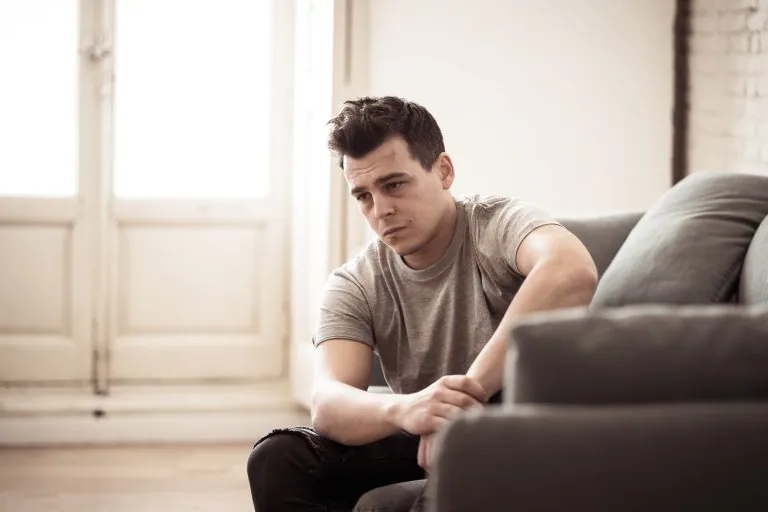
4 Trauma Response Types: Understanding Trauma
Trauma impacts people differently, and there’s no straightforward path to recovery. However, experts in mental health have identified four primary trauma responses: fight, flight, freeze, and fawn.
Each response carries its unique set of symptoms and coping mechanisms.
Understanding these responses allows you to learn how to deal with your trauma and start healing. We’ll explore each of these responses, discussing their impact on your life and providing practical tips for coping and seeking help.
What Is a Trauma Response?
Simply put, it’s how a person reacts to a traumatic event. Your body and mind have an automatic response to stress and danger, and that’s what’s called a trauma response. It can manifest in different ways for different people.
For example, you might be someone who’s ready to fight, someone who wants to run away, or someone who feels frozen in place. Alternatively, you might try to appease others to avoid conflict.
Mental health professionals have classified the responses above into four primary trauma responses: fight, flight, freeze, and fawn, and understanding these responses can help you make sense of your own reactions to trauma.

Trauma Response Types
When it comes to trauma, everyone responds differently. Some people may feel an overwhelming sense of fear or anxiety, while others may become numb or detached. Understanding the various trauma response types can help us recognize our own reactions and those of others.
Here are the four main trauma response types you should know:
1. Fight
The fight response is characterized by a tendency to confront challenges head-on. This response can manifest differently for different people, such as becoming physically or verbally aggressive. For example, someone might lash out at others or engage in risky behavior after exposure to trauma.
2. Flight
The flight response involves a strong urge to escape or avoid danger. People who experience this response might feel the need to physically run away from the situation or avoid it entirely. For instance, someone might avoid talking about a traumatic event or withdraw from social situations.
3. Freeze
The freeze response is when a feeling of being “stuck” or immobilized overwhelms a person exposed to trauma. People experiencing this type of response might feel unable to move, speak, or react. For example, someone might feel paralyzed with fear or feel emotionally numb.
4. Fawn
The fawn response happens when you find yourself trying to appease or please others to avoid conflict. People who experience this response might feel the need to submit to others or avoid standing up for themselves. For instance, someone might apologize excessively or agree with someone to avoid conflict.
It’s important to note that these responses are not conscious choices, but automatic responses triggered by the brain’s fear response system. Recognizing your trauma response type can help you develop healthier coping mechanisms and seek the support you need to heal.

Recognizing and Responding to Trauma
Trauma can hit fast and hard, leaving you overwhelmed and uncertain about what to do next. It’s essential to keep in mind that there is no one “correct” way to respond to trauma. In reality, we often don’t know how we’ll react until it happens.
The most important thing, however, is how we respond to trauma and how it influences our lives moving forward.
Immediately following a traumatic event, you may experience:
-
- Anxiety
- Avoidance of similar situations
- Confusion or dissociation
- Exhaustion, fear, or numbness
More severe trauma responses can include:
- Extreme distress
- Intense and intrusive thoughts
- Severe dissociation
- Delayed trauma responses can manifest as:
- Anxiety
- Flashbacks
- Avoidance of feelings or activities related to the traumatic event
- Depression
- Fatigue and sleep disorders
- Fear of the event happening again
Remember, it’s okay to feel the way you do, and there is no shame in seeking help. By recognizing and responding to trauma, you can take the first step toward healing and move forward.
If you find that your response is negatively affecting your day-to-day life, it’s important to seek professional help to begin the healing process.
Healing From Trauma
When we go through traumatic experiences, the aftermath can leave a lasting impact on our mental and emotional well-being. For this reason, it’s essential to ask for help and support when starting the healing process.
And although healing from trauma is a challenging and sometimes lengthy journey, it’s still possible to recover and live a trauma-free life.
To help guide you on your path to healing, here are some effective ways to cope with and heal from trauma:
1. Support Systems
Talking to supportive friends and family can be a helpful way to process and cope with trauma. Here are a few other support systems to consider:
- Support groups, online or in-person
- Hotlines and crisis centers
2. Self-Care Techniques
Taking care of yourself can be an important part of the healing process. Here are a few techniques to try:
- Mindfulness and meditation
- Exercise and physical activity
- Creative activities like art or music
3. Professional Help
When it comes to healing from trauma, seeking professional help from a licensed therapist can be incredibly beneficial. Trauma-focused therapy can help individuals work through trauma in a safe and supportive environment. There are various evidence-based therapeutic approaches that therapists may use, including:
- Cognitive Behavioral Therapy (CBT)
- Dialectical Behavior Therapy (DBT)
- Eye Movement Desensitization and Reprocessing (EMDR)
Talking to a therapist can help you learn how to identify and manage triggers, develop healthy coping mechanisms, and work through unresolved feelings.
Seeking professional help can also provide a safe and non-judgmental space to process your trauma and explore ways to move forward. Remember, healing takes time and patience, but with the right support and tools, it is possible.
Learn More About Trauma-Focused Therapy at Beachway
Looking for personalized, trauma-focused therapy to heal from trauma or overcome substance abuse? Beachway Therapy Center offers evidence-based practices and a range of programs to address mental health and addiction issues. Our experienced therapists work closely with you to create a personalized treatment plan tailored to your unique needs and concerns.
We believe in treating the whole person, not just the symptoms, and our goal is to create a safe, supportive environment where you can feel comfortable and confident as you work toward recovery.
Contact us today to learn more about our trauma-focused therapy programs and other services, including detoxification, residential treatment, and outpatient care.
Don’t wait to take the first step toward healing and recovery. Reach out to Beachway Therapy Center today and start your journey to a healthier, happier life.



